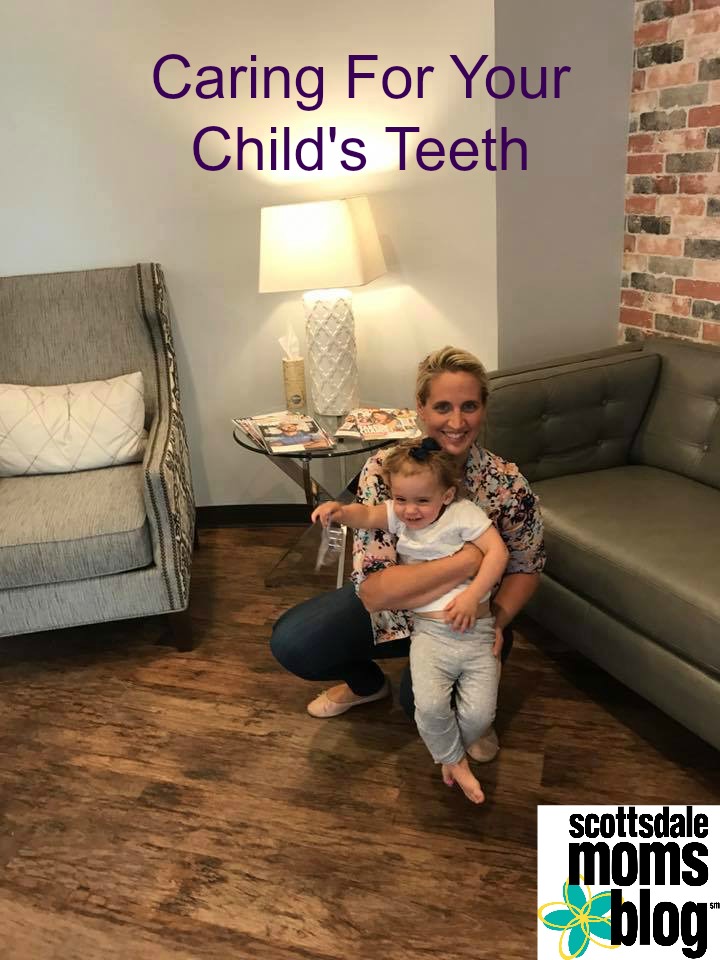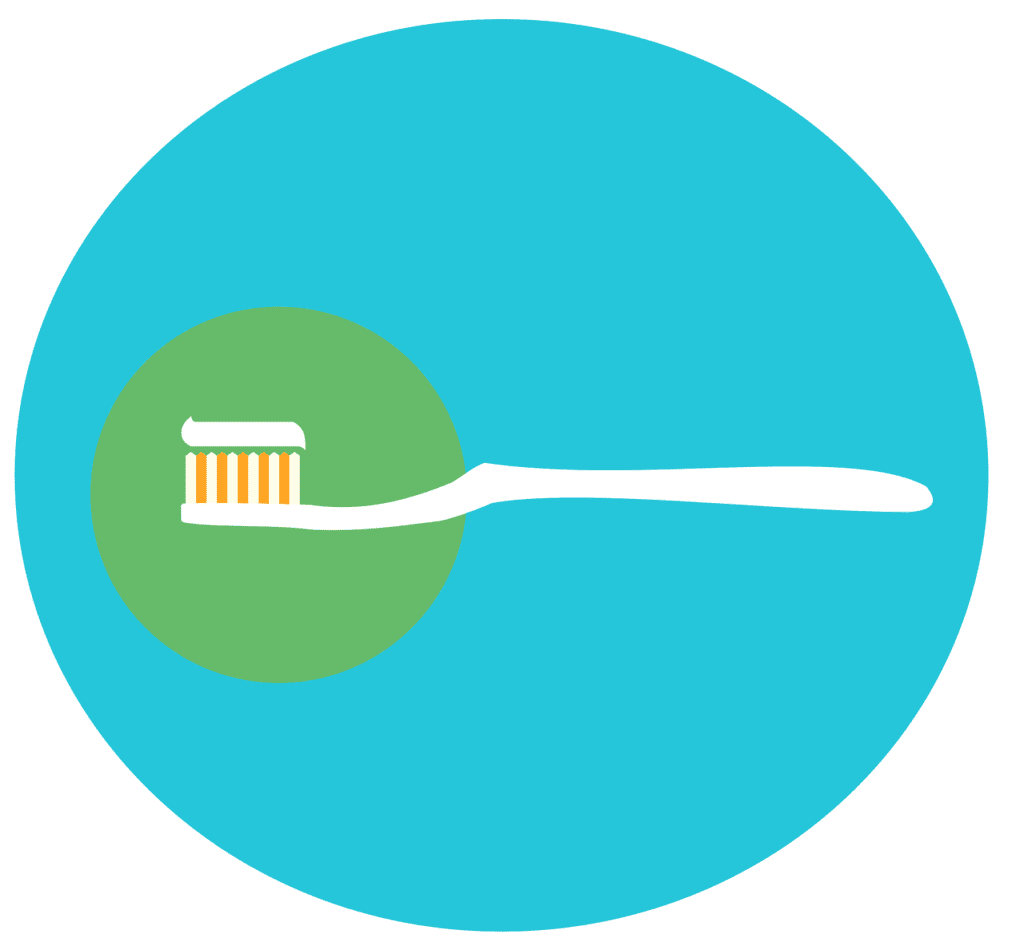
2017 started off with a bang. Literally. A bang straight to the ground. My 20 month old (at the time) was so excited to start the day, she was running around our island. It was a fall like any other. One she had done a million times. But this time, instead of catching the fall with her hands, she caught it with her face, in particularly, her teeth. Her poor beautiful brand new teeth were chipped off within a blink of an eye. I was in tears. How could I let this happen? I was standing right there. Why didn’t I stop her? The guilt was immediate and it lasted a long time (it’s still there). I immediately called my dear friend who is also a dentist. In tears I explained the situation. She kept me calm and told me to come right in. We brought our daughter into her office and she took on the impossible task of fixing a 20 month old’s teeth. With her sturdy hands, her kind eyes and her beautiful smile, she kept my daughter as calm as she could possibly be during this experience and she fixed her teeth.
I share this experience because injuries like this can happen in a blink of an eye. They can happen to the helicopter parent just as much as they can happen to the casual one. But I have learned that it is very important to have a list of doctors on hand that you can call who already know you. These should be doctors who you have seen before and who you have an established relationship with your child. With this in mind, I sat down with own family dentist and friend, Dr. Stacey Laskis from Parkview Dentistry, to ask her some important dental questions we all should know.
 What made you want to become a dentist?
What made you want to become a dentist?
They say “show me the child of seven and I will show you the man,” I should have known, then that I would be a dentist. Around the age of 9, most of my friends had started to get braces or orthodontic gear. I wanted so bad to have those cool colored elastics and all the metal in my mouth. Much to my chagrin (and my Mother’s delight) my dentist said that I did not need braces! So I made my own with paperclips and elastics. I was not allowed to wear them outside of the house so my treatment was limited. Yet, surprisingly it took me until my 3rd year of college to narrow down my interests to dentistry.
When should I start brushing my child’s teeth?
As with most aspects of parenting, it’s important to establish a routine early. I recommend just a clean cloth to wipe the gums after feedings. I understand that there are a lot of feedings that will happen in the early days and if you miss some of these, it will be fine! It’s mostly important that you are looking in their mouths to determine if there are any little lumps or bumps or anything out of the ordinary. Oral thrush is also fairly common in newborns so it’s important to determine the difference between milk/formula film and thrush.
You should start brushing with a toothbrush and a TINY SMEAR of fluoridated toothpaste once the first tooth erupts. At this age, most kids like to chew on a clean, wet tooth brush as well and there are specialized toothbrushes available with handles for this purpose. After the age of 3, the recommendation is to use a PEA-SIZED amount of fluoridated toothpaste and to brush for two minutes in the morning and before bed.
What is the best toothbrush and toothpaste to use on a baby?
There are a lot of toothbrushes and pastes on the market. Use an age-appropriate, soft toothbrush once the first tooth has erupted. I love electric toothbrushes for children because they generally have a timer on them and they get the child used to having something that “makes noise” can often make their dental cleanings easier. For toothpaste really anything with fluoride works. No need to buy a “training toothpaste” because you are using such a small amount until age 3.
What should I do if my child chips a tooth or has an injury?
The most important reason to find a dentist and establish your child as a patient of record is for emergencies. It’s nice to have a dental home to call if any emergencies happen. As we know, they usually occur on a Sunday afternoon! That’s why we encourage parents to bring their young children in for a visit early on. This way you and your child will have a comfort level with the dentist and the environment.
First step is to stay calm (I know. Easier said than done). There are a lot of blood vessels in the mouth so there may be a lot of blood. Once the shock wears off and the child has calmed, get a call into your dental office ASAP and they will ask you some questions to determine the extent of the chip or the fracture. The size of the fracture will determine the course of treatment which can range anywhere from a composite bonding to a crown to an extraction.
Should I allow the pediatrician put fluoride on my child?
This is a good question. There are two types of fluoride applications – topical and systemic. A topical fluoride is not ingested by the child and acts on the teeth that have erupted into their mouths. Examples of topical fluorides are mouth rinses, toothpastes, fluoride varnish. Systemic fluoride usually comes in the form of a chewable tablet. This treats the teeth that have not erupted into the child’s mouth (i.e. the permanent or adult teeth). The first thing that needs to be done on a child is called a “Caries Risk Assessment” which determines their risk for developing cavities. If it is determined that the child is high risk for developing cavities it is recommended that they be placed on a fluoride supplement. The prescription should be given by a dentist who are in the best position to determine caries risk, but it came into the realm of pediatrics because most children will see a pediatrician while many will not see a dentist. Systemic fluoride is only indicated in limited cases.
When should I schedule my child’s first dental visit?
The recommendation of the American Academy of Pediatric Dentists is for the child to be seen by a dentist by the time the first tooth erupts or by age one. This first visit is generally to establish a dental home, as I previously mentioned and to provide oral hygiene instructions. It is usually an examination and potentially a cleaning depending on the number of teeth present and the cooperation level of the child. We typically do not take any x-rays at this visit unless there are any concerns or trauma.
How do I brush my child’s teeth if they fight me?
This is always tricky! There are a number of apps available on your smartphone that can help. Most have timers and some have catchy songs to help. My personal favorite for younger kids is the Disney’s Magic Timer. They partnered with Oral B to create a fun app with Marvel and Disney characters. For older kids (and even adults!), Brush DJ is an app that plays 2 minutes of music shuffled from their ipod or ipad/iphone. It basically just acts as a two minute timer but at least they can enjoy their time! I will often brush my little ones’ teeth in the bath and make it part of the routine that way. Sometimes if they can hold a hand mirror or watch it makes it easier. Really just go with the flow! Whatever works for you to get in their mouths for two minutes!
What is your number one piece of advice when caring for a child’s teeth?
Set up a routine and stick to it. Know that often times it’s not “candy” that is the worst culprit for tooth decay. Juice and soda bathe the teeth in acid and easily flow in between the teeth. Any type of carbohydrate is still a sugar and they are often worse for the teeth than sweets. Bread, pretzels, crackers, chips and goldfish are the foods that get stuck in the teeth and sit there just waiting for “sugar bugs.”Rinsing with water after meals if brushing isn’t really an option is a good habit to get into!
Besides brushing daily, what is the best way to prevent my child from getting a cavity?
The obvious answer is to have perfect oral hygiene and limit sugary foods. However, genetics plays a role in tooth formation (baby start forming as early as 6 weeks in utero!) so taking care of your child’s teeth starts before they are even born! Taking prenatal vitamins and keeping up with your dental hygiene visits is a good start. Again, having a routine with your child starting as early as you can and getting a good dental home for your child will help. Like I said, genetics plays a big role in tooth formation and contributes to the risk for cavities, so even with excellent oral hygiene and limiting cavity-causing foods your child may still develop decay. So, cut yourself some slack! Just do your best and have a great relationship with a dental office and go from there!
Now I have a question for the Moms! Should I have a dental exam before trying to get pregnant? Why is it important?
The most effective time for intervention for your oral conditions is before you get pregnant. Bacteria from mom can transmit through the blood and amniotic fluid and results in increased risk of cavities in your child. It’s best to schedule any major dental work, get a full set of x-rays and do any whitening if desired. Once you are pregnant, you should schedule an appointment for a cleaning and to go over any questions or concerns you have about your oral health with your dentist and hygienist. Also, check with your insurance company, but many will cover additional dental cleanings during pregnancy.

















